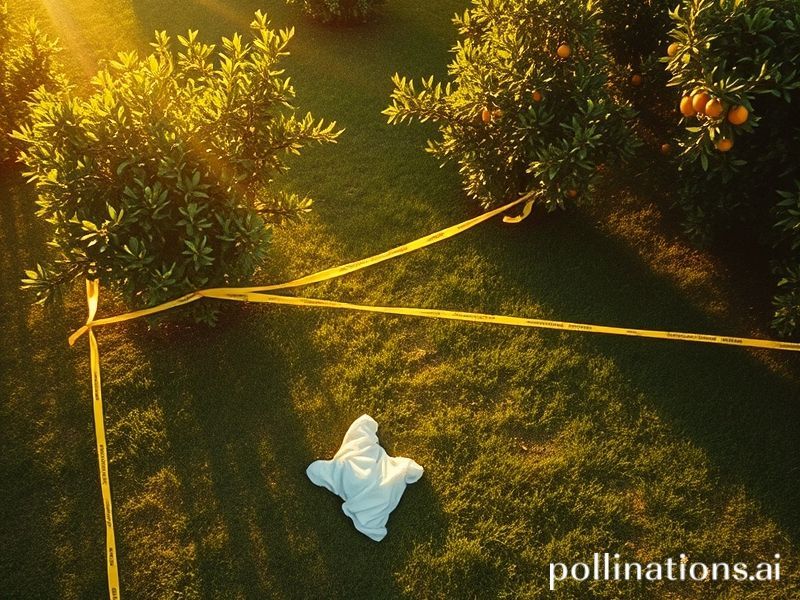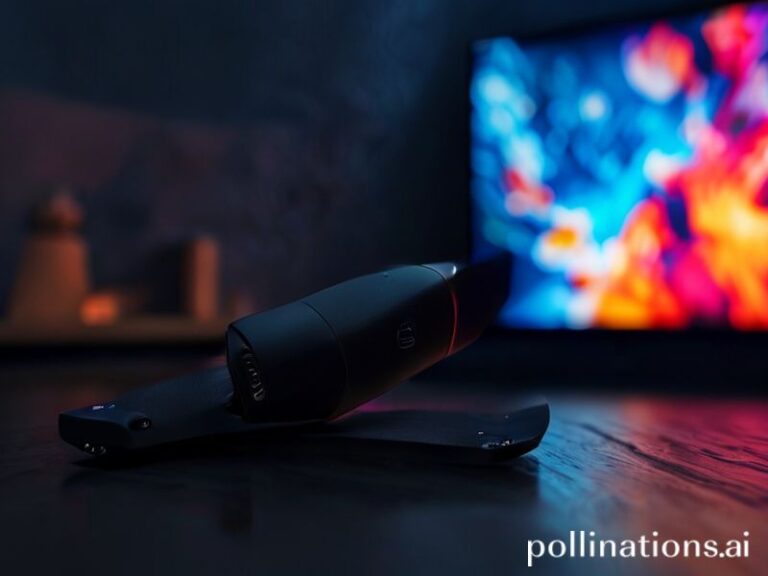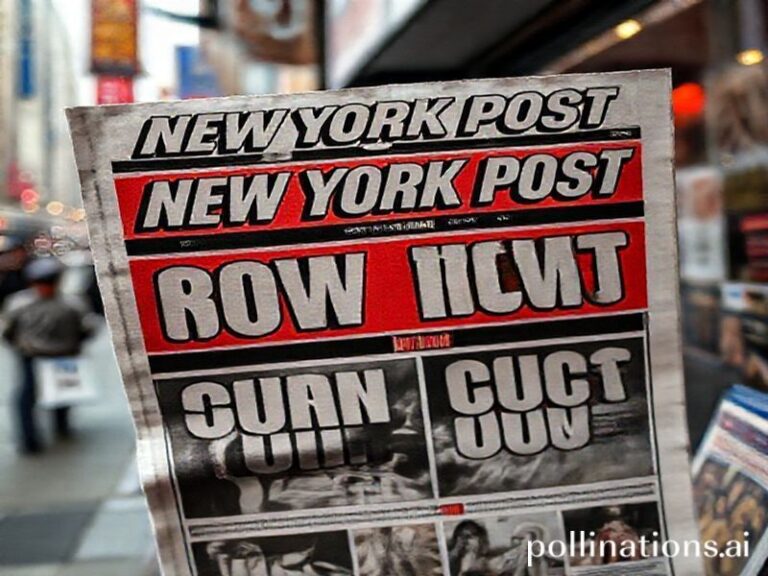Sunshine Murders: How a Pool-Side Massacre Exposed the Rot Beneath Europe’s Green Dream
Tourists usually flock to the Costa del Sol for sangria, sunburn, and the reassuring fantasy that the Mediterranean is a postcard rather than a crime scene. So when the Spanish press christened last month’s quadruple homicide in Marbella “The Sunshine Murders,” the branding stuck faster than cheap sunscreen. Four bodies—two British crypto-advisers, a retired Danish shipping magnate, and a Colombian influencer—were found neatly arranged around a chlorinated infinity pool like a conceptual-art installation titled “Late-Stage Capitalism.” The pool water, still turquoise in the morning light, had diluted the blood into a shade Instagram filters call “Tulum Dawn.”
Europe yawned, then booked flights. After all, the Continent has grown accustomed to turning corpses into content; true-crime podcasts have become the new duty-free. Within 48 hours, Danish tabloids had already crowdsourced the shipping tycoon’s offshore holdings, British TikTokers were live-streaming grief outside the crime-scene tape, and a Colombian NFT collective was minting “RIP Anitta” tokens faster than you can say “non-fungible tragedy.” Meanwhile, Interpol politely requested that everyone stop geotagging the villa, because nothing ruins an active investigation like an influencer doing yoga poses next to the evidence markers.
The immediate assumption was organized crime—those cosmopolitan cartels that now outsource their wet work the same way Silicon Valley outsources customer support. But the deeper you dig, the more the Sunshine Murders look like a multinational corporate merger gone septic. The victims were all minor shareholders in SolArray, a green-energy startup promising to blanket the Sahara in solar panels and sell the wattage to Northern Europe via undersea cable. Noble on paper, less so on spreadsheets: leaked documents suggest the project functioned mainly as a carbon-offset laundromat for Gulf monarchies and American fast-fashion brands. One slide deck literally listed “optics” as a revenue stream.
If that sounds familiar, congratulations—you’ve been paying attention. The same shell-game of virtue, venture capital, and violence is currently touring the globe like a low-budget Bond film. In Kenya, eco-entrepreneurs are being shot over lithium deposits; in Malaysia, palm-oil barons trade ESG credits the way kids once swapped Pokémon cards. The Costa del Sol just happens to be where the jet-set goes to tan their reputations between quarterly reports. It’s Club Med with extradition treaties.
Global implications? Picture a domino made of mirrored glass. SolArray’s bankruptcy filing, already teed up in Delaware, will ripple through green-bond markets from Zurich to Singapore, reminding investors that even guilt has counter-party risk. The EU’s newly-minted Carbon Border Adjustment Mechanism—billed as the fiscal equivalent of kale—now has blood on its leaves. And the United Arab Emirates, busy polishing its COP28 halo, is quietly scrubbing SolArray from its sovereign wealth fund’s website, proving once again that when sustainability meets sovereign immunity, the only thing that’s truly renewable is hypocrisy.
Back in Marbella, the local mayor has proposed a “reflection garden” where tourists can contemplate violence while sipping cucumber water. Ticket proceeds will allegedly fund trauma counseling for underprivileged influencers. Construction begins next spring, assuming the contractors aren’t murdered first—a betting market has already opened on Polymarket, because nothing says healing like leveraged speculation.
Human nature, ever the reliable punchline, has responded to the Sunshine Murders with the moral clarity of a goldfish. The villa is now a pilgrimage site for true-crime pilgrims who leave flowers, vape cartridges, and business cards for their crypto start-ups. Someone even set up a merch stand selling beach towels emblazoned with the chalk-outline motifs. They’re moving briskly at €45 a pop; supply-chain disruptions have taught us to monetize scarcity early.
So here we are, citizens of a world where the sun never sets on the empire of grift, and even the pool boys have LinkedIn profiles. The Sunshine Murders are less a whodunit than a who-doesn’t: an entire global class that believes virtue can be crowdsourced, violence can be offset, and grief looks best in Valencia filter. The case may be solved, but the verdict on the rest of us is already in—guilty, with a suspended sentence and a loyalty-points upgrade to business class.







